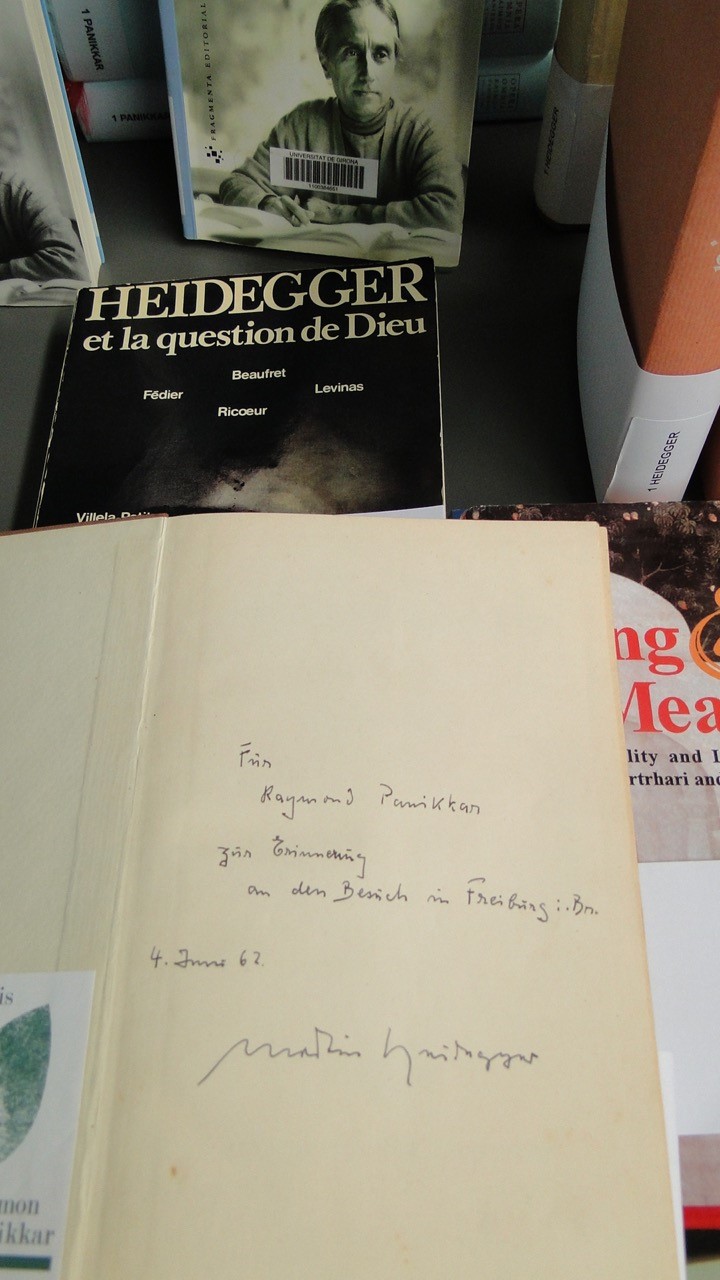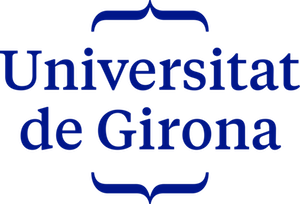
Thought-provoking dialogue: a conversation with Panikkar and Heidegger
Maria Cucurella Miquel holds a degree in Humanities from the Pompeu Fabra University, and translator of several books on philosophy: François Cheng, Cinco meditaciones sobre la muerte (2015); Dominique de Courcelles, De soplo y de espejo (2006), Viaje de hierba y de lluvia (2006); several texts by the increasingly recognized Pierre Hadot, La ciudadela interior (2013), El velo de Isis (2015), La filosofía como forma de vida (2009), No te olvides de vivir: Goethe y la tradición de los ejercicios espirituales (2010); or the classic study Henri-Charles Puech, Sobre el maniqueísmo y otros ensayos (2006). She cultivates music, guitar and singing, and currently resides in Mantua where she studies Music Therapy; she has recently presented her first foray into narrative with the novel, El pájaro de la lágrima azul (2020). She is well acquainted with the Panikkar-UdG Library as she has often wandered through it.
This “thought-provoking dialogue” begins, in fact, with the meeting that took place between the two philosophers in Freiburg in Breisgau in 1953. Panikkar was invited by Max Müller to give a lecture at the University of Freiburg, apparently with great success, entitled “cultural sin in the West”. Müller speaks to Heidegger who ends up inviting Panikkar to his house, initiating a personal and intellectual dialogue that will last all his life. Well known is the manuscript poem Sprache (‘Language’) that Heidegger sends to Panikkar with the dedication “For Prof. Panikkar and his students, March 18, 1976” shortly before his death. The poem begins, “When will words / become word again word? …” Speech, the word, language, the play of sound and silence … will be a recurring and overlapping theme in their conversations.
That first dialogue, however, focused on the concept of “God”, where they no longer coincided so much. While Heidegger had a rather static conception of God as “supreme entity”, Panikkar would say, he had a more dynamic one, as “being in transit”, as “trinitarian becoming”.
In the Panikkar Library we find seventy references to “Heidegger”, among texts and monographs, and Panikkar reads, works, underlines, annotates, reflects, writes long digressions … that is to say, Panikkar knows Heidegger well.
One of these texts of Heidegger well worked by Panikkar is Was heisst denken (‘What does it mean to think?’), and in the copy we found in the Library there is this dedication by Heidegger: “To Raymond Panikkar in memory of the visit to Freiburg to Br. (June 4, 1962), one more example of their close and continued relationship.
Some of Panikkar’s long annotations are read - in German, since he often makes the annotations according to the language of the book - from the text, which is in fact a dialogue: “Why does what is most worthy of being thought escape thought?” he asks with Heidegger, affirming that “it is an important book, by a master”.
After an interesting colloquium, this enlightening and suggestive session ended with a poetic reading of Sprache (‘Language’), thus evoking the question “For which poets?”, Conference of 1945 in memory of the twentieth anniversary of RM Rilke’s death, which we find in his Holzwege (‘Forest Paths’).
This research has generated a document that has served as a script for the session, with a first exposition and subsequent colloquium. We would like this document to serve as a basis and stimulus for future studies on this thought-provoking dialogue between Panikkar and Heidegger.
See here the video recording of the session.

